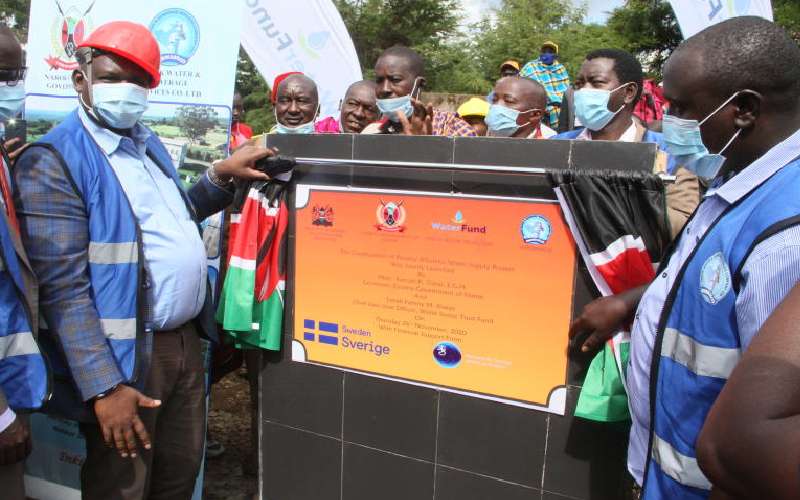×
The Standard e-Paper
Join Thousands Daily

Narok Governor Samuel Tunai and Narok Water and Sewerage Company managing director Stanley Kuyioni unveil a plague of the Sh45million Oltepesi Olamuitai water project in Narok East. [Robert Kiplagat, Standard]
After several months of silence, Narok Governor Samuel Tunai has finally declared his support for the Building Bridges Initiative (BBI) report saying that he will do all he could to popularise the document among the Maa-speaking counties.